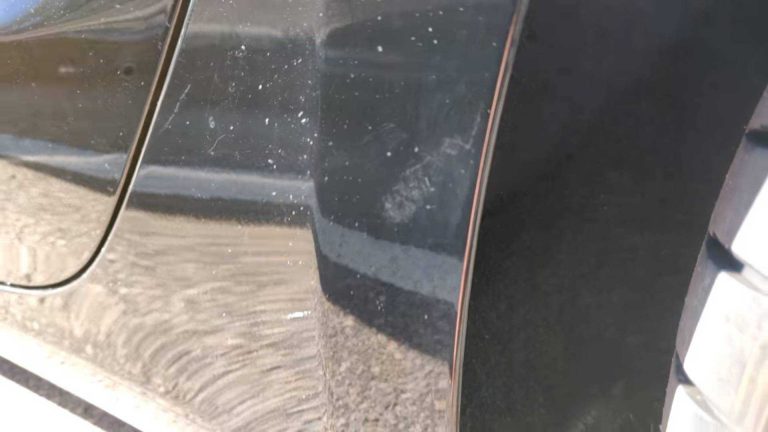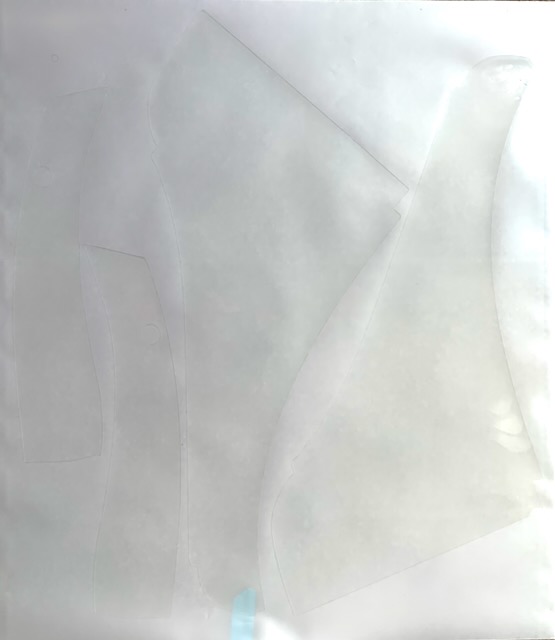
As it says on the right hand side of this page (or down at the bottom if you’re on mobile) I hate stone chips on cars. I mean, really, they are inevitable – after all, you’re driving something at speeds up to 70 MPH on roads that, if you look carefully are covered in little stones, bits of grit and random things (I once got the end of dinner fork stuck in a tyre, much to the bemusement of the tyre fitter at Costco!) All of these can get kicked up by the vehicle in front and pinged at your car and it’s unavoidable that some will hit the paint work and chip little bits of paint off, normally leaving an unsightly black mark instead of paint. If left, these marks can rust if they happen on a metal panel.

The problem is exacerbated by two things – firstly there is more traffic on the roads than ever before, all kicking up these delightful little missiles at your pride and joy, and secondly, modern cars (post 2000) tend to have fully painted/colour coded front ends leaving a wider potential landing zone for these aforementioned missiles. I think my old Ford Escort I drove when I was 17 had two chips on the front end at 50,000 miles!
How do you prevent paint damage?
So if you don’t want to have the front end of your car peppered with chips by the time it has done 50,000 miles, you can have it resprayed, but that will cost around £1000 in the UK for a bonnet and bumper partial respray, and you run the risk of the paint not matching, or being a poor finish. Plus you have to spend the first 50,000 miles looking at the ever increasing range of pimples on your car. The alternative is PPF or Paint Protection Film – this clear, highly robust plastic film covers your car’s paintwork and adds a physical barrier to the paint meaning that most rocks will bounce off and not be able to chip the paint underneath. It is also incredible at preventing scratches and can even prevent people keying your paintwork. Even if they do manage to cut through the film, the chances are that the paint underneath will be fine when you remove the film. That’s the other benefit – if you do manage to damage the film, then individual panels can be peeled off and replaced by a trained installer.

What does it cost, and where can you get it done?
PPF on whole panels such as bonnets (hoods) and bumpers needs to be installed by a professional. However small elements to cover headlights, lower sills and doors, and even the boot (trunk) lip where you load objects in and out of the car are able to be installed by a competent DIY enthusiast. EV Protect sell small kits that help protect vulnerable areas such as the Tesla rear sill/rocker panel (which gets horribly chipped up) on eBay and many hundreds of owners have reported that they helped protect their Tesla’s paint and prevent chips. Click this link to browse their products. £45 will stop this damage, but you’ll ideally need to apply it before it gets chipped.

If you want a full car covered in PPF, or even just a bumper or front end, then I would suggest you visit a professional for a quote and to see vehicles that have been protected. Mint Condition UK in Chelmsford, Essex have protected many cars for me over the years, from a Lotus Elise, to Tesla Model 3, S and Y. Prices will range from £500 – £4000 depending on what finish you require (gloss, matte, even colour changing!) and how much coverage you require. Their website is here and they can provide you a bespoke quotation.
What about Ceramic Coating?
I need to be very clear here that ceramic coatings or nano/glass coatings that are often sold by car dealers will not prevent chips and scratches. These coatings help to improve the gloss of a car and certainly make it easier to wash, but they provide a bonded coating that is a few microns thick and will eventually wear off. PPF is a physical and very tough adhesive film and protects the paint underneath by completely sealing it away. If you want to keep your paint factory fresh, you need PPF, after all, it is only factory paint once!


